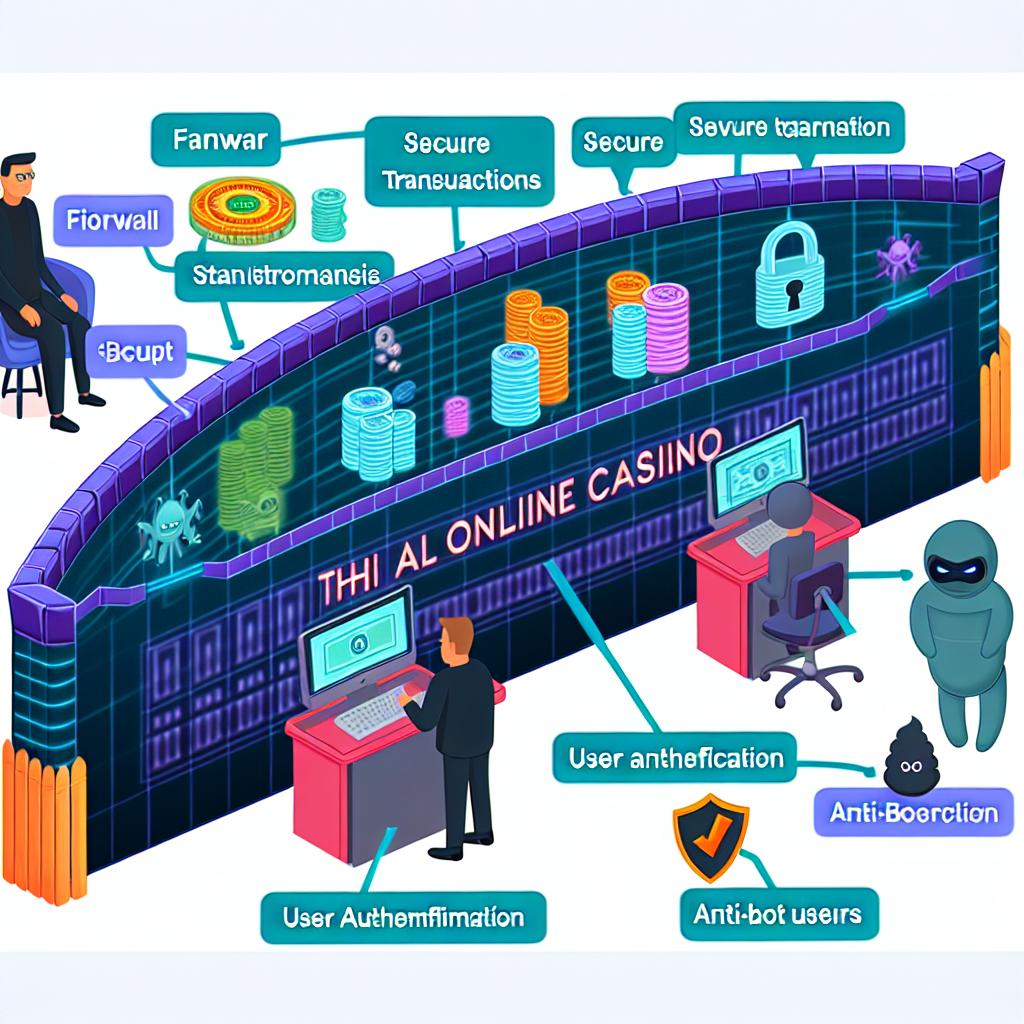
How do online casinos prevent fraud?
Online Casinos and Fraud Prevention
Online casinos have become increasingly popular, offering players the excitement of gaming from the comfort of their homes. However, with the rise of online gambling comes the increased risk of fraud and cybercrime. To combat these threats, online casinos employ various strategies and technologies designed to protect both the players and the integrity of the platform. This article delves into some of the key methods used by online casinos to prevent fraud.
Advanced Encryption Technologies
To protect sensitive player information, online casinos utilize advanced encryption technologies. These technologies ensure that data transmitted between the player and the casino is secure and cannot be intercepted by malicious parties. Most reputable online casinos use SSL (Secure Socket Layer) or TLS (Transport Layer Security) encryption protocols to safeguard user data. These protocols are essential for maintaining the confidentiality and integrity of personal and financial information shared during transactions.
SSL and TLS encryption provide a secure tunnel for data to travel, effectively making the information unreadable to anyone who might try to intercept it. This is crucial because online gambling involves exchanging sensitive information such as credit card numbers and personal identification details. As technology evolves, so does encryption, with newer versions being continually developed to address emerging cybersecurity threats. Online casinos often upgrade their encryption solutions to keep pace with these developments, ensuring player information remains protected.
Rigorous Identity Verification
Online casinos implement rigorous identity verification processes to ensure that each player is who they claim to be. This process typically requires new players to submit identification documents, such as a passport or driver’s license, along with proof of address. By verifying identities, casinos can help prevent fraudulent activities like identity theft and ensure compliance with legal gambling age restrictions.
Know Your Customer (KYC) Policies
The Know Your Customer (KYC) policy is a critical aspect of identity verification. It involves collecting and verifying personal information from players to prevent money laundering and other illegal activities. Online casinos that adhere to KYC guidelines can identify suspicious behaviors and take appropriate action to protect their platforms and users.
By implementing stringent KYC processes, online casinos also align themselves with international standards designed to combat financial crimes. These processes are often part of broader initiatives that include Anti-Money Laundering (AML) regulations, which aim to identify and block illicit use of gambling platforms for money laundering.
Two-Factor Authentication (2FA)
To add an extra layer of security, many online casinos offer two-factor authentication (2FA). This security measure requires players to provide an additional form of identity verification, often in the form of a code sent to their mobile device or email, before accessing their accounts. By implementing 2FA, casinos can effectively reduce the risk of unauthorized access and potential account breaches.
Two-factor authentication operates by using something the player knows (like a password) and something the player has (like a phone or an email account). This dual-check system significantly enhances security because even if a thief acquires a player’s password, they would still need access to the second factor to penetrate the account. This method complements traditional security measures, offering a formidable barrier against account takeovers.
Fraud Detection and Monitoring Systems
Online casinos utilize fraud detection and monitoring systems to identify and prevent fraudulent activities in real-time. These systems use sophisticated algorithms and machine learning techniques to analyze player behavior and transaction patterns. When a potential threat is detected, the system alerts the casino, allowing them to investigate and take necessary actions to mitigate the risk.
Behavioral Analytics
Behavioral analytics play a crucial role in fraud detection. By analyzing data on how players interact with the platform, casinos can detect anomalies that may indicate fraudulent behavior. For example, if a player’s behavior suddenly changes, such as making unusually large bets or frequent deposit requests, it can trigger an alert for further investigation.
The use of machine learning models enables fraud detection systems to adapt continuously, improving their ability to detect suspicious activities over time. These models can identify intricate patterns that human-led monitoring might miss, adding an additional protective layer to the casino’s security infrastructure.
Collaboration with Regulatory Bodies
To ensure transparency and accountability, reputable online casinos collaborate with regulatory bodies and comply with industry standards. These regulatory bodies oversee the gaming industry’s practices, ensuring that casinos adhere to fair play and security standards. Collaboration with these organizations provides an additional layer of protection for players and helps maintain the casino’s credibility.
Regulators conduct audits and assessments of online casinos, ensuring compliance with legal requirements and ethical gaming protocols. By working with these bodies, casinos demonstrate their commitment to operating legitimately and protecting consumer interests. For players, this collaboration offers peace of mind, knowing that their chosen platform is recognized and overseen by established authorities in the gambling sector.
For more information about online casino security, visit this resource.
Conclusion
In conclusion, online casinos employ a multifaceted approach to prevent fraud, incorporating technological, procedural, and regulatory measures. By investing in security technologies and adhering to strict verification processes, casinos aim to create a safe and fair gaming environment for all players. The ongoing advancement of fraud prevention strategies is essential for maintaining the trust and confidence of the online gambling community.
As the online gambling landscape continues to evolve, casinos must remain vigilant and proactive in their efforts to combat fraud. This vigilance not only protects players but also preserves the integrity of the gaming industry, ensuring that online gambling remains an enjoyable and secure activity for players worldwide.



